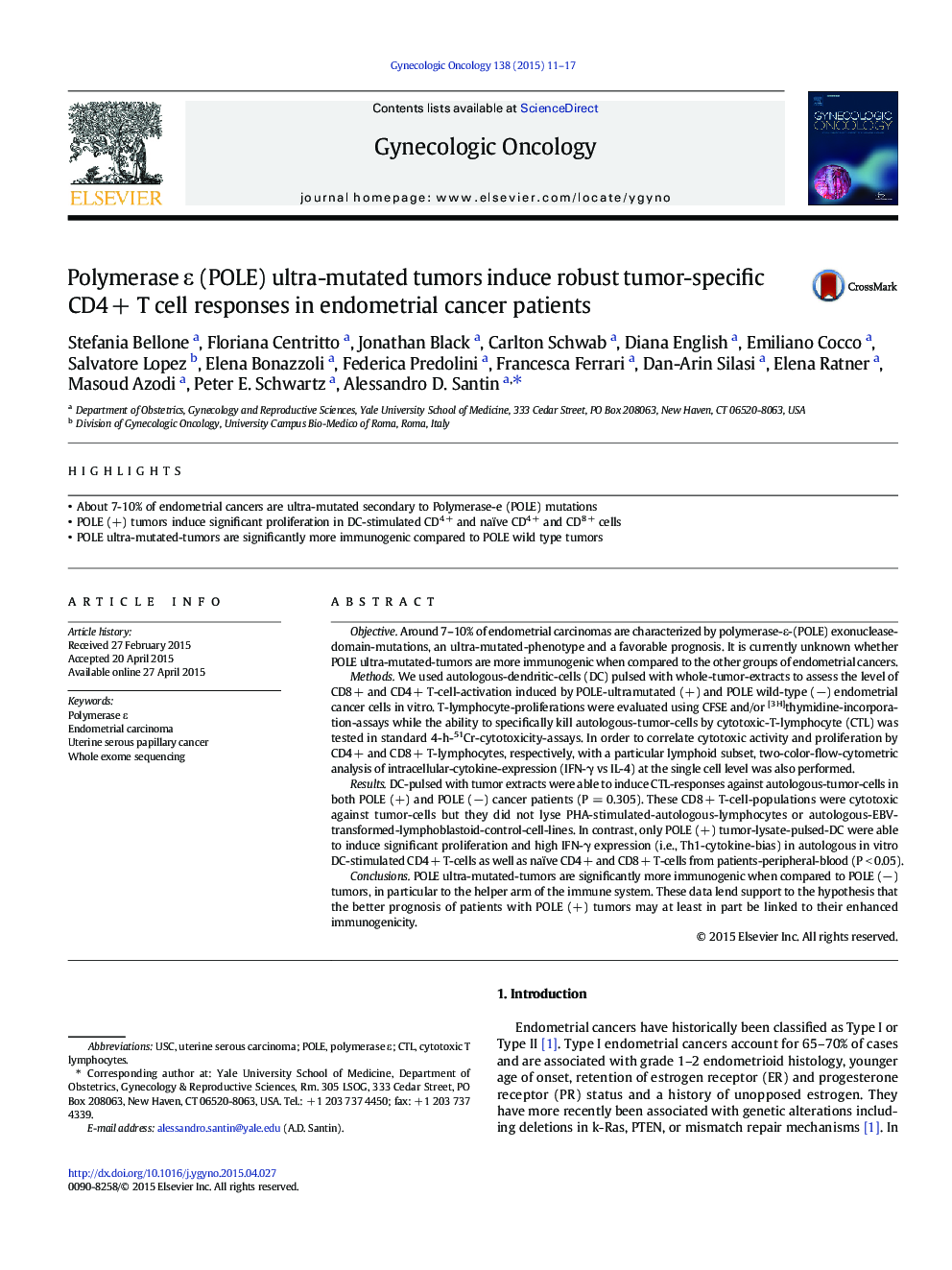| Article ID | Journal | Published Year | Pages | File Type |
|---|---|---|---|---|
| 6182622 | Gynecologic Oncology | 2015 | 7 Pages |
â¢About 7-10% of endometrial cancers are ultra-mutated secondary to Polymerase-e (POLE) mutationsâ¢POLE (+) tumors induce significant proliferation in DC-stimulated CD4 + and naïve CD4 + and CD8 + cellsâ¢POLE ultra-mutated-tumors are significantly more immunogenic compared to POLE wild type tumors
ObjectiveAround 7-10% of endometrial carcinomas are characterized by polymerase-ε-(POLE) exonuclease-domain-mutations, an ultra-mutated-phenotype and a favorable prognosis. It is currently unknown whether POLE ultra-mutated-tumors are more immunogenic when compared to the other groups of endometrial cancers.MethodsWe used autologous-dendritic-cells (DC) pulsed with whole-tumor-extracts to assess the level of CD8 + and CD4 + T-cell-activation induced by POLE-ultramutated (+) and POLE wild-type (â) endometrial cancer cells in vitro. T-lymphocyte-proliferations were evaluated using CFSE and/or [3H]thymidine-incorporation-assays while the ability to specifically kill autologous-tumor-cells by cytotoxic-T-lymphocyte (CTL) was tested in standard 4-h-51Cr-cytotoxicity-assays. In order to correlate cytotoxic activity and proliferation by CD4 + and CD8 + T-lymphocytes, respectively, with a particular lymphoid subset, two-color-flow-cytometric analysis of intracellular-cytokine-expression (IFN-γ vs IL-4) at the single cell level was also performed.ResultsDC-pulsed with tumor extracts were able to induce CTL-responses against autologous-tumor-cells in both POLE (+) and POLE (â) cancer patients (P = 0.305). These CD8 + T-cell-populations were cytotoxic against tumor-cells but they did not lyse PHA-stimulated-autologous-lymphocytes or autologous-EBV-transformed-lymphoblastoid-control-cell-lines. In contrast, only POLE (+) tumor-lysate-pulsed-DC were able to induce significant proliferation and high IFN-γ expression (i.e., Th1-cytokine-bias) in autologous in vitro DC-stimulated CD4 + T-cells as well as naïve CD4 + and CD8 + T-cells from patients-peripheral-blood (P < 0.05).ConclusionsPOLE ultra-mutated-tumors are significantly more immunogenic when compared to POLE (â) tumors, in particular to the helper arm of the immune system. These data lend support to the hypothesis that the better prognosis of patients with POLE (+) tumors may at least in part be linked to their enhanced immunogenicity.
